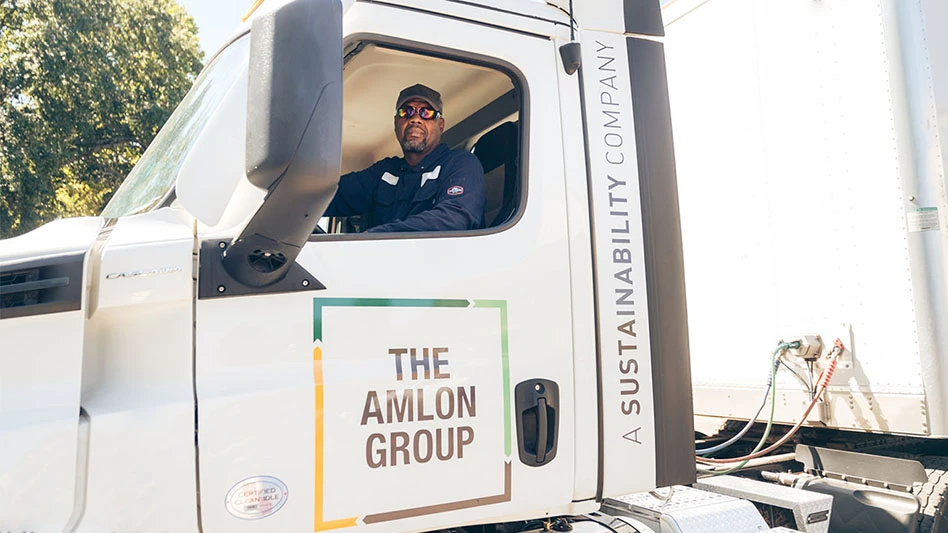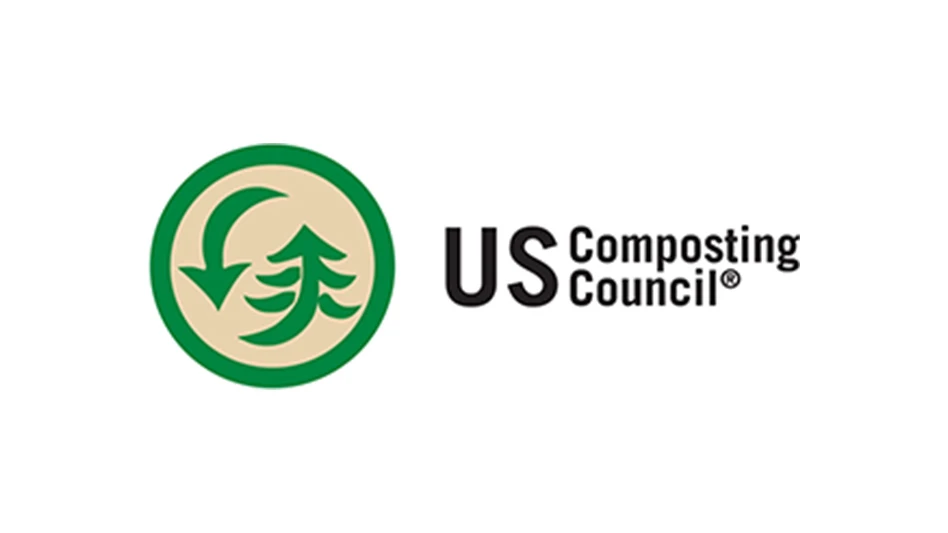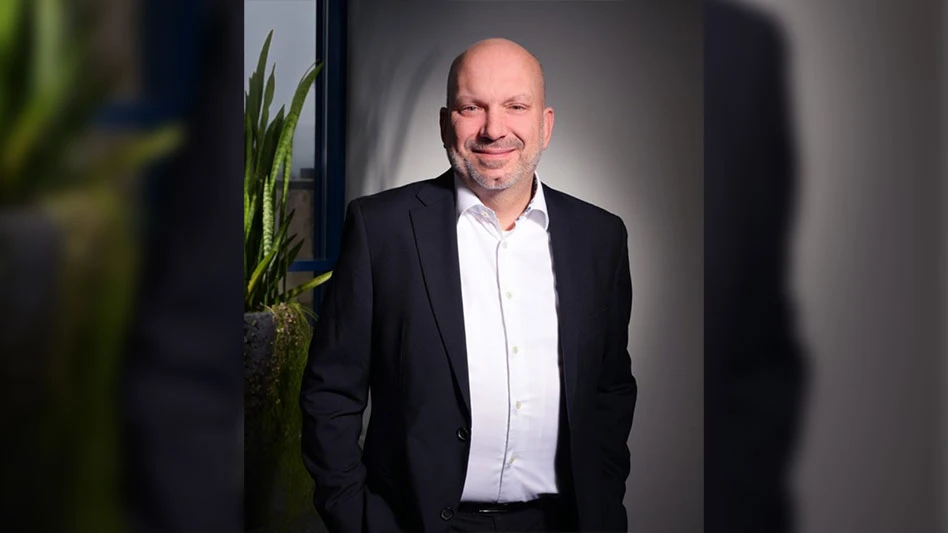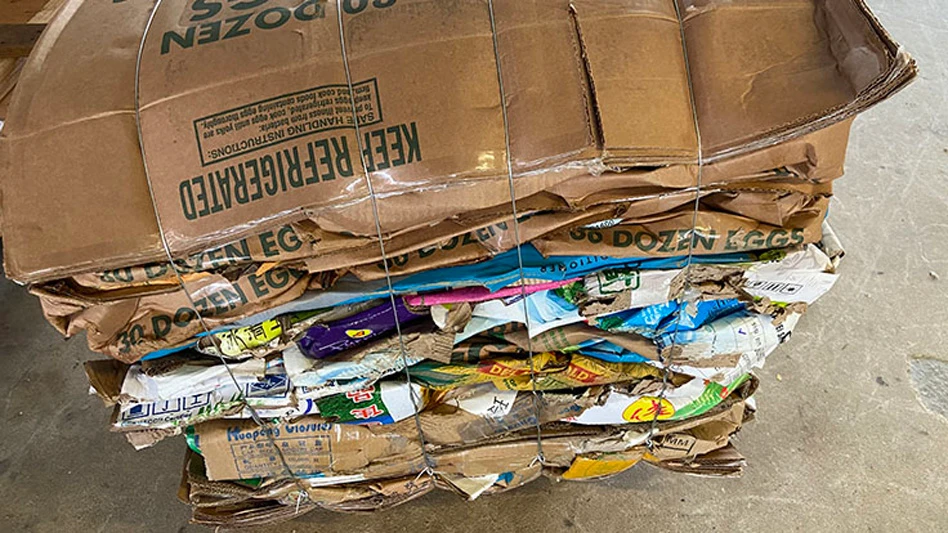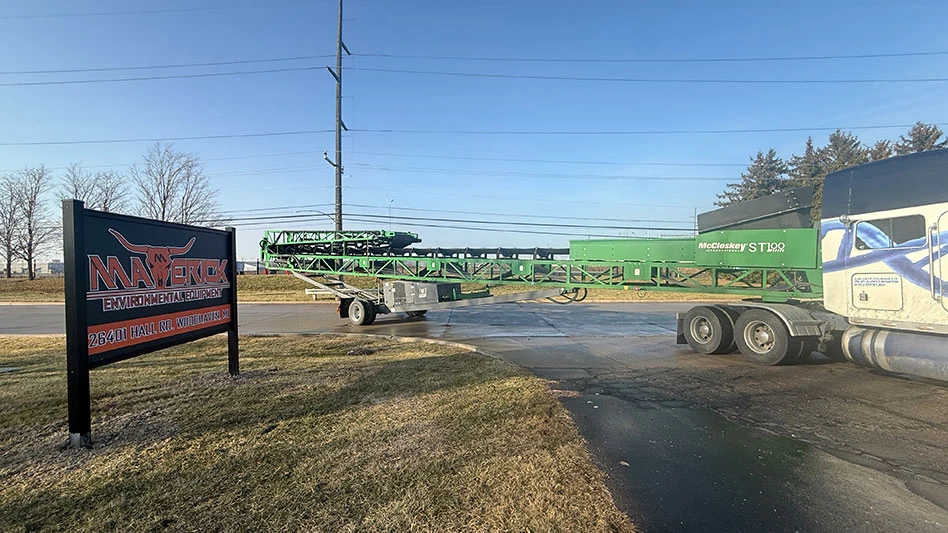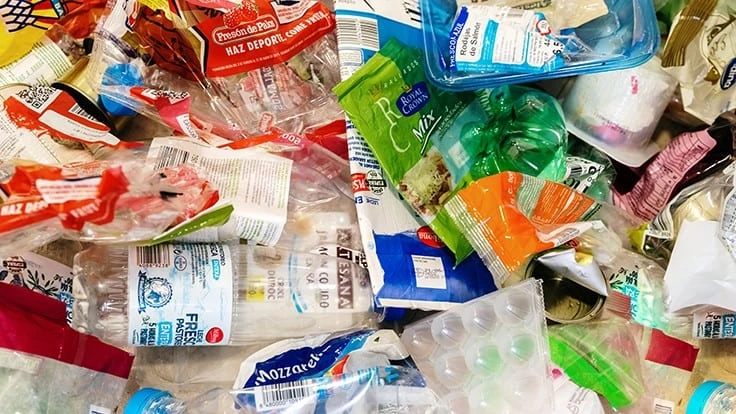
Founded in 2014 by John Hanselman and Kevin Chase, Wellesley, Massachusetts-based Vanguard Renewables was created with the primary goal of transforming what was once considered waste into renewable energy to power homes, businesses and communities.
Working directly with food manufacturers and other organic waste producers from across the food and beverage spectrum, the renewable energy company’s projects have placed an emphasis on recycling organic waste that would have previously ended up in a landfill.
With seven operating facilities located across the Northeast, Vanguard Renewables collects inedible or unusable food waste, along with other organics, which are delivered to the company’s farm-powered anaerobic digestors. From there, the material is combined with farm manure in a sealed biodigester tank, where it is then converted into biogas.
“All of our projects are done through anaerobic digestion (AD),” says Hanselman, the company’s co-founder and CEO. “We take the organic matter, put it into these huge, million-gallon hot pots and cook that product for 30 days. While we do that, the naturally occurring microorganisms that are in the gut flora of the cow manure eat the food waste and emit methane.”
The resulting biogas is then cleaned to produce energy in the form of renewable natural gas for heating and cooling or compressed natural gas (CNG) for vehicles. It can also be converted into renewable electricity.
According to the company, the remaining liquid digestate creates a low-carbon fertilizer that supports regenerative agriculture practice and reduces farm dependence on chemical fertilizers.
GOING THE EXTRA MILE
Although Vanguard’s AD facilities have helped establish the company as a national leader in the development of organic waste-to-energy projects in the U.S., Hanselman says the company eventually identified a demand for more comprehensive recycling operations.
“When we started the company, we thought we just needed to run the anaerobic digesters on the farms. And then it turned out that we really needed to help perform all the logistics, as well as the hauling and dispatching of the food waste,” Hanselman says. “More and more of what we were hearing from customers was that they didn’t want to deal with separating the food waste and removing contaminants. They wanted [someone to provide] all of that.”
"[Our customers] wanted one vendor who would handle all the organic matter. … So, the ORF turned out to be a wonderful step in opening and broadening our appetite, and our ability to consume any organic waste regardless of what form it was delivered to us.” –John Hanselman, co-founder and CEO, Vanguard Renewables
Faced with growing pressure from food waste producers to offer a one-stop shop for organics processing, the company broadened its portfolio with the opening of an organics recycling facility (ORF) in December 2020. The advanced facility in Agawam, Massachusetts, is designed to depackage and process expired goods, off-spec batches or unsafe to eat food and beverage products.
“[Our customers] wanted one vendor who would handle all the organic matter, both to have them in compliance if they were in a state that had a landfill diversion ordinance or if they had a really strong mission statement and commitment to climate reduction and decarbonization,” Hanselman says. “So, the ORF turned out to be a wonderful step in opening and broadening our appetite, and our ability to consume any organic waste regardless of what form it was delivered to us.”
According to Ryan Harb, senior organics market manager for Vanguard, the new depackaging facility has solved a significant need within the industry.
“We opened up this depackaging facility because there’s a lot of food waste and beverage waste out there that is still in its packaging and can’t be sold to consumers. Because [this packaged food] can’t go to a digester or compost facility, it’s getting landfilled or incinerated. So, having this facility is that other option and really helps Vanguard be more vertically integrated,” he says.

EXTRACTING ORGANIC WASTE
Currently, the facility is permitted to process up to 250 tons of organics per day. Harb says the material coming in can range from beer cans to bakery items, with the facility seeking to recycle any organic matter it can.
“Any organic matter out there that can make renewable energy, we want it,” he says. “We can take it and we can put it to really good use for society. So, send everything our way and we can clean it up and use it for a really good use.”
In order to handle the diverse range of materials the facility comes in contact with, Vanguard uses a series of processes to separate the organics from its packaging.
“The thing that’s really interesting about the depackaging [system] is that it’s basically a big squishing machine,” Hanselman says.
The process begins on a walking floor that allows facility personnel to visually inspect the incoming material. Following the inspections, the material continues on to a series of augurs that are meant to squeeze and move organic material out the sides while leaving inorganics, such as plastics, cardboard and aluminum, in the middle of the system.
The remaining organic material then passes through exterior screens, where appropriate sized fractions are dropped into a containment vessel that is shipped to the company’s anaerobic digesters.
“[The system] we have is just one mechanical step after another,” says Hanselman. “The first step is basically twin screen augers, so it’s kind of like a sausage maker. As material is fed into the system, it’s squishing the organics outside and then it goes into a hammermill.”
The Agawam facility uses a Mega Thor Turbo Separator manufactured by New Prague, Minnesota-based Scott Equipment Co. for its hammermill. The 45,000-pound preprocessing, depackaging and separation system consists of a series of hammers that are tasked with squeezing the material even further.
“The goal of the depackaging facility is to not shatter the plastics or aluminum,” Hanselman says.
“We want to be able to recycle as much as possible. If you shatter it, you get lots of little fragments and shards, so the hammermill acts like a massaging machine. You’re really just trying to squeeze and get the package open. We hope that we open that package in the augers, and now with the hammermill we’re trying to push as much of that material through the screens and out into our collection bins [as we can].”

CLOSING THE LOOP
The organics slurry is stored in tanks and distributed to Vanguard’s farm-based anaerobic digesters daily, where it is extracted for natural gas or biogas to make renewable electricity.
The resulting energy has been used to power nearby schools, a local creamery, and Middlebury College in Vermont, to name a few examples.
“Middleburry College has actually decarbonized their entire campus by only using our renewable natural gas, which is super exciting and emblematic of what we’d like to see more and more of, which is that closed loop cycle,” says Hanselman. “We can take food from the college, we can take food from the local creameries in Vermont, we can take all of that, make renewable natural gas and send it back. That’s the closed loop system, and it works really well.”
Hanselman says Vanguard’s ultimate goal is to be in every major metro area in the U.S. within the next five years.
“Every manufacturing facility and every institution in the U.S. has unusable food waste. There’s really no part of the country that shouldn’t have [organics recycling infrastructure],” he says. “There’s been a wonderful effort to reduce the amount of food waste [that is sent to landfill], but there is an endemic percentage of food that loses temperature, gets contaminated or becomes unsafe for human consumption.”
“If you look at Europe, for example, the proliferation of food waste recycling is like second nature over there. They would never even think of throwing away a half-eaten piece of pizza or something. They would always make sure that it gets to an organics recycling bin, and that’s aspirational. … That’s something that we would love to see [in the U.S.] in the next 10 or 20 years.”
While the Agawam site is Vanguard’s first depackaging facility, the company already has aspirations to roll out similar infrastructure across the country.
“One of the biggest shortcomings in this country right now is there’s not enough of these [facilities], and there’s a lot of food and beverage waste out there. So, we’re really trying to get ahead of that by building [more depackaging facilities] and do something good with [this waste], which is creating that renewable energy and low-carbon fertilizer,” says Harb.
This article originally appeared in the April issue of Waste Today. The author is the assistant editor of Waste Today and can be reached at hrischar@gie.net.
Latest from Waste Today
- Altor program boosts EPS recycling
- TXP Environmental acquires Texas landfill
- Landfill methane measurement: From models to direct observation
- Aduro selects Netherlands as site for industrial scale-up facility
- CDRA Conference & Tradeshow 2026: CDRA honors annual award recipients
- WM reports revenue, earnings growth in Q4 and full-year 2025
- Reclamation Technologies USA acquired by investment fund
- Stadler equips Spanish MRF
